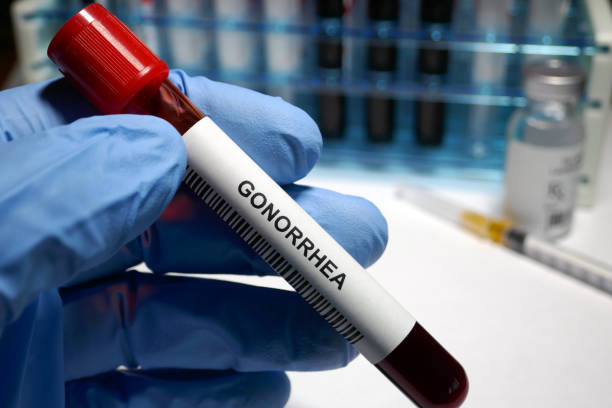Gonorrhea is a sexually transmitted infection caused by the bacteria Neisseria gonorrhoeae. It can affect both men and women and can lead to serious health complications if left untreated. Gonorrhea is a common STI that can be transmitted through unprotected sexual contact with an infected person. Symptoms may not always be apparent, but when they do occur, they may include painful urination, discharge from the genitals, and abdominal pain.
If you suspect that you have contracted gonorrhea, it is essential to seek medical attention immediately. Treatment for gonorrhea typically involves a combination of antibiotics and lifestyle changes to prevent reinfection. In this article, we will discuss the most common treatments for gonorrhea and how to prevent it from spreading.
Page Contents
Antibiotics for the Treatment of Gonorrhea
Antibiotics are the primary treatment for gonorrhea. The goal of antibiotics is to eliminate the bacteria causing the infection and prevent further damage to the body. The type of antibiotic and dosage will depend on several factors, including the severity of the infection, the patient’s age and medical history, and any drug allergies. Some of the most commonly prescribed antibiotics for gonorrhea include:
-
Ceftriaxone
Ceftriaxone is an injectable antibiotic that is highly effective in treating gonorrhea. It is often used in combination with azithromycin, an oral antibiotic, to increase its effectiveness. Ceftriaxone is administered as a single injection, usually in the arm or buttocks. It is important to complete the entire course of antibiotics as prescribed, even if symptoms disappear.
-
Azithromycin
Azithromycin is an oral antibiotic that is often used in combination with ceftriaxone to treat gonorrhea. It is taken as a single dose and is highly effective in treating the infection. Azithromycin may cause some side effects, including nausea, diarrhea, and abdominal pain.
-
Doxycycline
Doxycycline is an oral antibiotic that is often used to treat gonorrhea when the patient is allergic to other antibiotics. It is usually taken twice a day for seven days. Side effects of doxycycline may include sun sensitivity, nausea, and diarrhea.
It is important to note that gonorrhea strains have been reported to develop antibiotic resistance in recent years. This can make treatment more challenging, and it is essential to follow the prescribed antibiotic regimen closely.
Lifestyle Changes
Along with antibiotics, lifestyle changes are also recommended for those with gonorrhea. These changes can help prevent reinfection and the spread of the infection to others. Some lifestyle changes that may be recommended include:
-
Abstinence from sex
Abstinence from sex is the most effective way to prevent the spread of gonorrhea. This includes vaginal, oral, and anal sex.
-
Use of condoms
If you choose to have sex, using condoms can reduce the risk of transmission. Condoms should be used correctly every time you have sex.
-
Screening and treatment of partners
If you have been diagnosed with gonorrhea, your sexual partners should be screened and treated for the infection as well. This can help prevent reinfection and the spread of the infection to others.
-
Avoidance of alcohol and tobacco
Alcohol and tobacco use can weaken the immune system and make it harder for the body to fight infections. It is important to avoid these substances while undergoing treatment for gonorrhea.
Complications of Gonorrhea
Gonorrhea can lead to serious health complications if left untreated. Some of the complications of gonorrhea include:
-
Pelvic Inflammatory Disease
Pelvic inflammatory disease (PID) is a bacterial infection of the reproductive organs that can lead to infertility,chronic pelvic pain, and an increased risk of ectopic pregnancy. PID is a common complication of gonorrhea in women, but it can also occur in men.
-
Epididymitis
Epididymitis is an inflammation of the epididymis, a tube located at the back of the testicles. It can cause pain, swelling, and tenderness in the scrotum. If left untreated, epididymitis can lead to infertility.
-
Disseminated Gonococcal Infection
Disseminated gonococcal infection (DGI) is a rare but serious complication of gonorrhea that occurs when the bacteria spread throughout the body. DGI can cause fever, rash, joint pain, and inflammation of the heart and other organs. DGI can be life-threatening if not treated promptly.
-
Gonococcal Conjunctivitis
Gonococcal conjunctivitis is an eye infection caused by gonorrhea. It can cause redness, swelling, discharge, and vision problems. Gonococcal conjunctivitis can be transmitted during childbirth if the mother has an untreated gonorrhea infection.
-
Increased Risk of HIV
Untreated gonorrhea can increase the risk of contracting HIV if exposed. This is because the inflammation caused by gonorrhea can make it easier for the HIV virus to enter the body.
Preventing Gonorrhea
Prevention is the best way to avoid the complications of gonorrhea. The following steps can help prevent the spread of gonorrhea:
-
Practice Safe Sex
Using condoms correctly every time you have sex can reduce the risk of contracting gonorrhea. However, condoms do not provide complete protection, as the infection can be transmitted through skin-to-skin contact.
-
Get Regular Screenings
Getting regular screenings for STIs, including gonorrhea, can help detect the infection early and prevent complications. If you are sexually active, it is recommended to get tested for STIs at least once a year.
-
Inform Your Sexual Partners
If you have been diagnosed with gonorrhea, it is important to inform your sexual partners so that they can get tested and treated as well. This can help prevent reinfection and the spread of the infection to others.
-
Avoid Risky Sexual Behaviors
Engaging in risky sexual behaviors, such as having multiple sexual partners or having unprotected sex, can increase the risk of contracting gonorrhea and other STIs.
Conclusion
Gonorrhea is a common sexually transmitted infection that can lead to serious health complications if left untreated. Antibiotics are the primary treatment for gonorrhea, and lifestyle changes can help prevent reinfection and the spread of the infection to others. It is important to get regular screenings for STIs, practice safe sex, and inform your sexual partners if you have been diagnosed with gonorrhea. By taking these steps, you can reduce your risk of contracting gonorrhea and prevent the complications associated with the infection.



